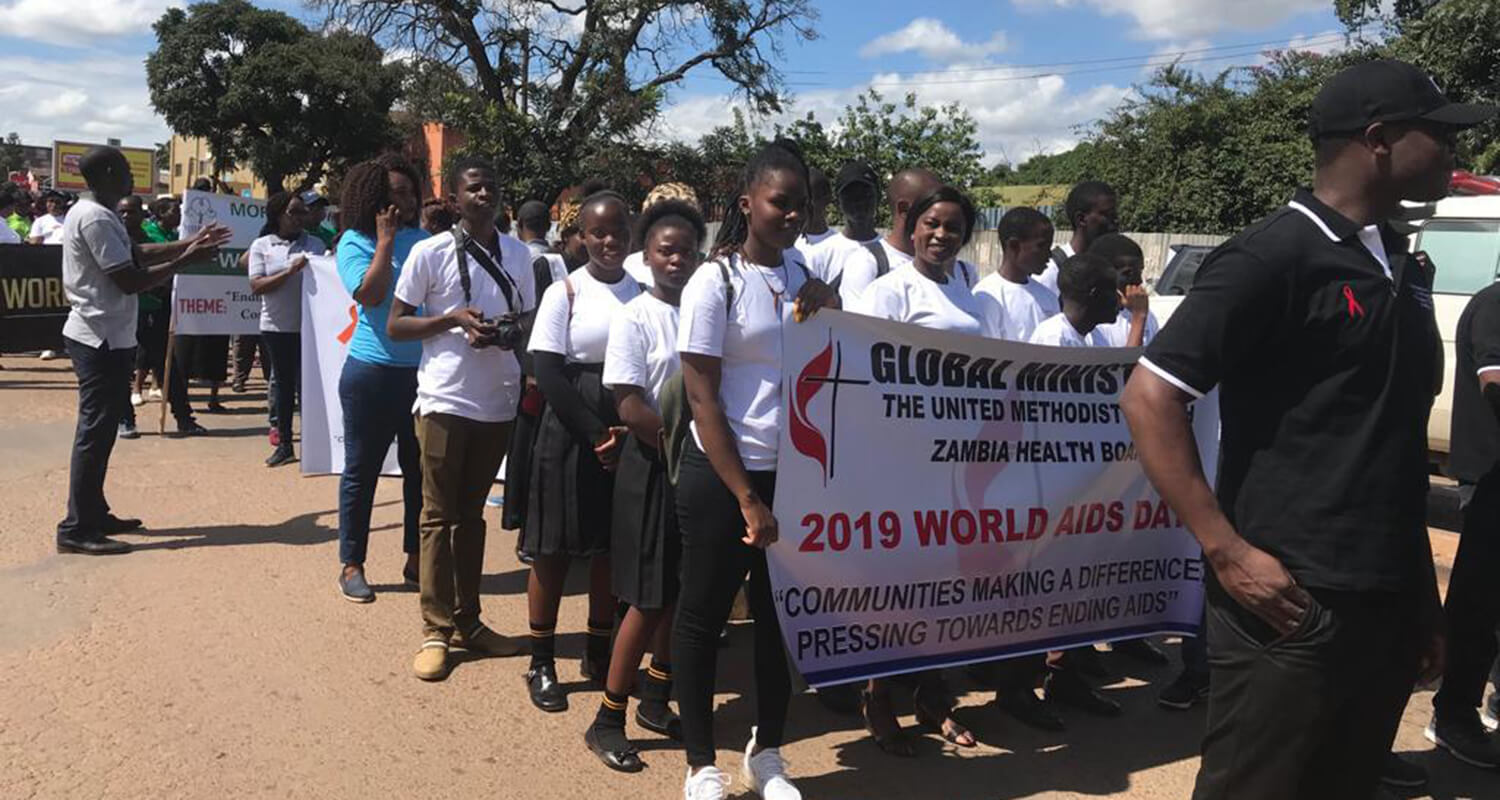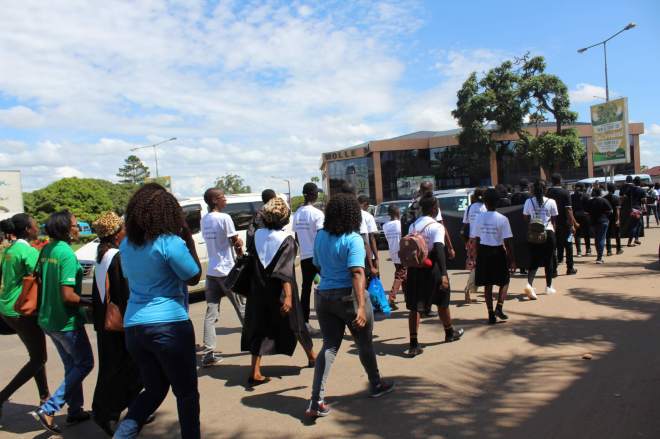No longer a generation of anguish but a generation of hope

By Kathy Griffith
February 2020 | ATLANTA
Ending the AIDS pandemic is a collective responsibility. It is a life-saving ministry and movement in which the church plays a vital part. There are eight projects under the Abundant Health banner that have leading roles in reaching young people who are least aware, most at risk, and perhaps most afraid of stigma.
The United Methodist Church’s Health Board in Zambia joined local partners in Kitwe, and the rest of the world, to organize and commemorate World AIDS Day 2019 in December. It was themed “Communities making a difference, pressing toward ending AIDS.”
The celebration began with a candlelight service, helping participants remember people lost to AIDS and to have renewed hope for life. The district commissioner, Binwell Mpundu, gave an inspiring message. He said, “We are no longer a generation of anguish but a generation of hope. A hope that by 2030, Zambia will have zero new HIV infections.” He declared the goal attainable with collective action from all stakeholders.
The day was filled with activity for the people of Kitwe – aerobics, a march, a fun run and tug-of-war, but also with HIV education, counseling and testing, and condom distribution. Everyone was called upon to participate in the fight against AIDS; everyone can offer a hand to stop it. The general public was encouraged to go for testing, refer others for testing, take preventive measures and take antiretroviral medication consistently.

PHOTO: COURTESY ZAMBIA UM HEALTH BOARD
The church is part of the wider community. It can make a significant difference in this life-saving campaign. The health board actively works with the Zambian Ministry of Health and other organizations in the mining city of Kitwe to spread information to prevent HIV, improve access to testing and treatment, and to work against stigma. It recently trained 74 young people as Peer Educators. They are starting to reach out to their friends at school, college and university, establishing clubs and communicating through drama, song and radio, urging everyone to know their status and to treat each other with dignity. The health board is the only organization there reaching out to adolescents.
The Zambia UMC Health Board is part of a national campaign to pursue UNAIDS’ 90–90–90 target. The objective for this campaign is: 90% of people living with HIV know their HIV status, 90% of people who know their HIV-positive status access treatment and 90% of people on treatment have suppressed viral loads. In 2019, the health board launched the U=U campaign: The Undetectable virus is Untransmittable.
As the Zambia Health Board, we are proud of being part of this noble cause and making contributions to Zambia’s vision of ending new AIDS infections by 2030.
Betty Tshala, Health Office/Board Coordinator
Kathy Griffith is the program manager for Maternal, Newborn and Child Health, Global Ministries. This article was adapted from a report by Betty Tshala, who serves as the Health Office/ Board Coordinator, Zambia UMC Health Board, and as a UMC missionary with the Mujila Falls Project in Zambia.

